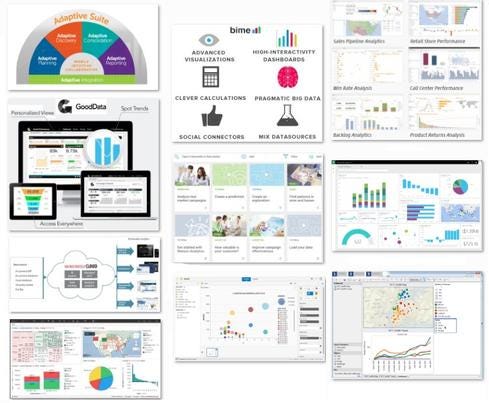Microsoft Buying Revolution Analytics For Deeper Data Analysis
Microsoft acquisition of Revolution Analytics, an R-language-focused advanced analytics firm, will bring customers tools for prediction and big-data analytics.


10 Cloud Analytics & BI Platforms For Business
10 Cloud Analytics & BI Platforms For Business (Click image for larger view and slideshow.)
Microsoft announced Friday that is will close a gap in its data-analysis portfolio by acquiring Revolution Analytics, an eight-year-old vendor that has developed a commercially supported enterprise platform around the open-source R statistical- and predictive-analysis language.
"We're making this acquisition to help more companies use the power of R and data science to unlock big data insights with advanced analytics," wrote Microsoft's Joseph Sirosh, corporate vice president, machine learning, in a blog post on Jan. 23.
[ Want more on growing big data capabilities? Read Microsoft Azure Adds NoSQL, Search & HBase Services. ]
SAS is the marketshare leader in advanced analytics, followed by IBM, which acquired SPSS in 2009 in order catch up in that arena. Revolution Analytics was founded in 2007 (as Revolution Computing) to take advantage of the fast-growing open-source R movement. CEO Dave Rich and CTO Greg Todd are veterans of Accenture Analytics, while other leaders joined from SPSS, MathSoft (now part of Tibco), and Netezza (now part of IBM).
Microsoft has deep analytics expertise in its labs and in its cloud and search businesses. There are bits and pieces of advanced analytics capabilities built into Microsoft SQL Server, SQL Server Analysis Services, and SQL Server Parallel Data Warehouse (PDW). Microsoft also has the Azure Machine Learning Service (Azure ML), introduced last year, but it lacks an advanced analytics workbench product. The acquisition of Revolution Analytics will give Microsoft on-premises tools for data scientists, data miners, and predictive analysts.
"Revolution Analytics provides an enterprise-class platform for the development and deployment of R-based analytic solutions that can scale across large data warehouses and Hadoop systems, and can integrate with enterprise systems," wrote Sirosh.
In a Revolution Analytics blog on the deal, the company's chief community officer, David Smith, defended Microsoft's credibility and support of open-source movements. He also took pains to explain the company's stake in supporting R, listing Xbox online gaming, Bing, Azure, Office, and Azure ML as products and services that make use of the language.
"Our combined teams will be able to help more users use advanced analytics within Microsoft data platform solutions, both on-premises and in the cloud with Microsoft Azure," wrote Smith, a veteran of S-Plus. "And just as importantly, the big-company resources of Microsoft will allow us to invest even more in the R Project and the Revolution R products."
The companies provided no details on the expected timing of the acquisition, but Microsoft promised more details regarding the ways the company's technology will fit within its portfolio when the transaction closes.
Just 30% of respondents to our new Big Data and Analytics Survey say their companies are very or extremely effective at identifying critical data and analyzing it to make decisions, down from 42% in 2013. What gives? Get the The Trouble With Big Data issue of InformationWeek Tech Digest today. (Free registration required.)
About the Author
You May Also Like






